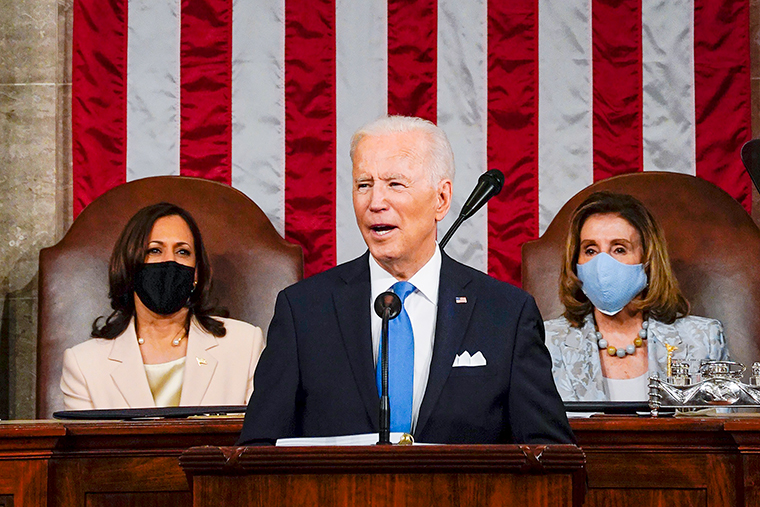Biden: ‘We have service members in Afghanistan who were not yet born on 9/11’

President Biden made an appeal for bipartisanship and his sweeping infrastructure plan tonight, framing the need for consensus domestically as a means for the US to maintain competitiveness globally, particularly with China.
“Vice President Harris and I met regularly in the Oval Office with Democrats and Republicans to discuss the American Jobs Plan. And I applaud a group of Republican Senators who just put forward their own proposal,” Biden said during his address to a Joint Session of Congress, referring to a proposal unveiled by Sen. Shelley Moore Capito last week.
Biden continued, “So, let’s get to work. I wanted to lay out to Congress my plan before we got into the deep discussion. I’d like to meet with those who have ideas that are different. We welcome ideas. But the rest of the world isn’t waiting for us. I just want to be clear: from my perspective, doing nothing is not an option. Look, we can’t be so busy competing with one another and forget the competition we have with the rest of the world to win the 21st century.”
Biden went on to describe a two-hour conversation he had with Chinese President Xi Jinping upon taking office.
“He’s deadly earnest on becoming the most significant, consequential nation in the world. He and others, autocrats, think that democracy can’t compete in the 21st century with autocracies. It takes too long to get consensus,” he said.
Biden is betting on democracy — and that, in his view, will require consensus and big investments. Central to that challenge will be the consensus of Congress, and whether he’s able to forge ahead and pass key legislative priorities with a 50-50 Senate.
There have been active discussions with top White House officials and a group of Senate Republicans, including Capito, on the potential compromise, though the intensifying discussions are still in early stages. Biden has also suggested that his definition of “bipartisan” passage of his massive infrastructure proposals does not necessarily require Republican votes in Congress, but rather, support from a majority of Americans.
![]()


